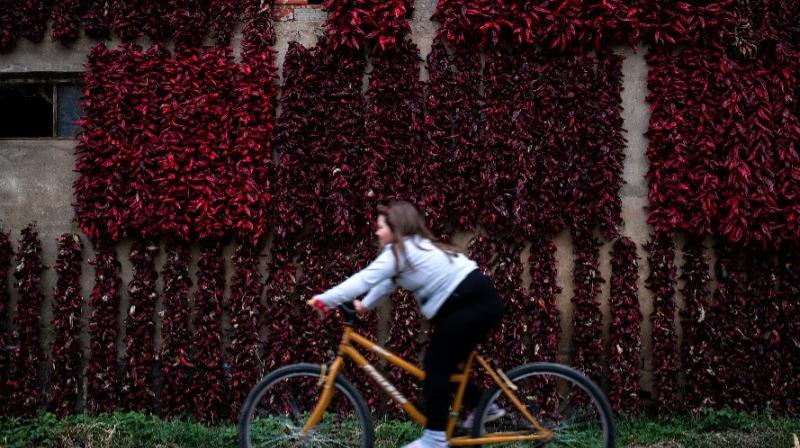Serbia: 'Paprika capital of the world' turns red
Individual pepper seeds are planted in plastic cups starting on March 8 and are transferred to the ground in May.

The village of Donja Lokosnica has turned red, as the pepper harvest hanging out to dry on almost every wall brings a wash of intense color to this Serbian farming community.
Most of the 1,300 inhabitants are involved in growing red peppers, which are air-dried before being ground into paprika, a vital spice in Balkan cuisine.
Part of the crop is hung to dry in late September, strung up from trees, roofs and on walls - where they look like thick, crimson ivy.
The self-proclaimed “paprika capital of the world,” off the highway between Belgrade and Macedonia’s capital Skopje, has been growing sweet and hot peppers for generations in a cycle lasting nine months each year.
“Life goes by with paprika,” says Verka Stojanovic, a woman in her 80s.
Individual pepper seeds are planted in plastic cups starting on March 8 and are transferred to the ground in May. The plants love heat and the 2017 harvest was abundant, meaty and rich in color and taste thanks to a scorching hot summer.
The peppers are “sweet as sugar, but also hot,” Verka said.
Some of the peppers are sold fresh and can be used to make ajvar, a traditional Serbian condiment that also contains garlic, chili pepper and roasted aubergine.

